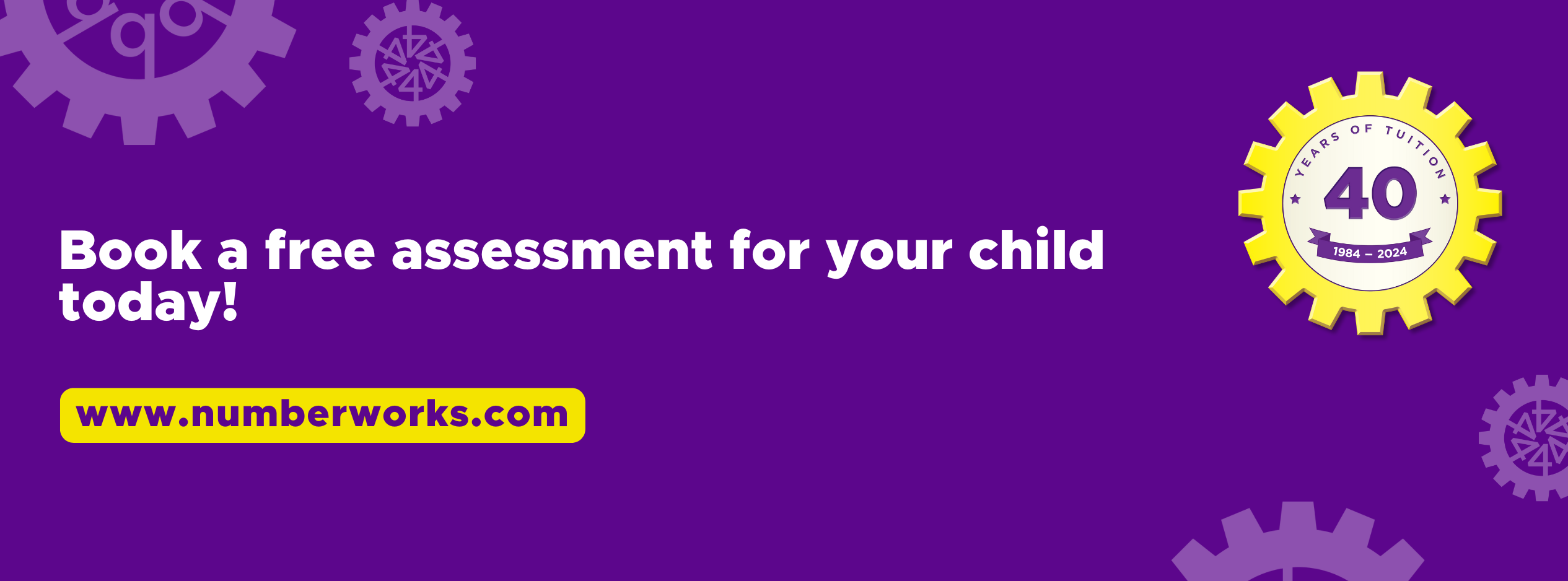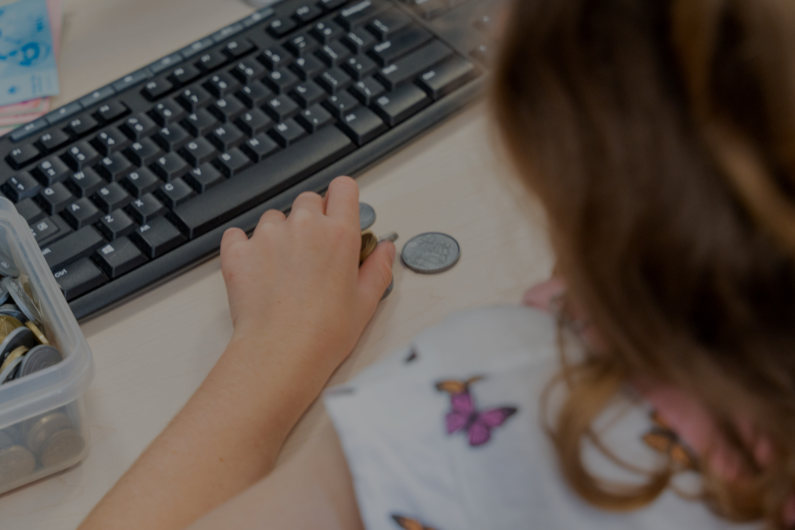What AI Can’t Do: Teaching the Human Side of Learning
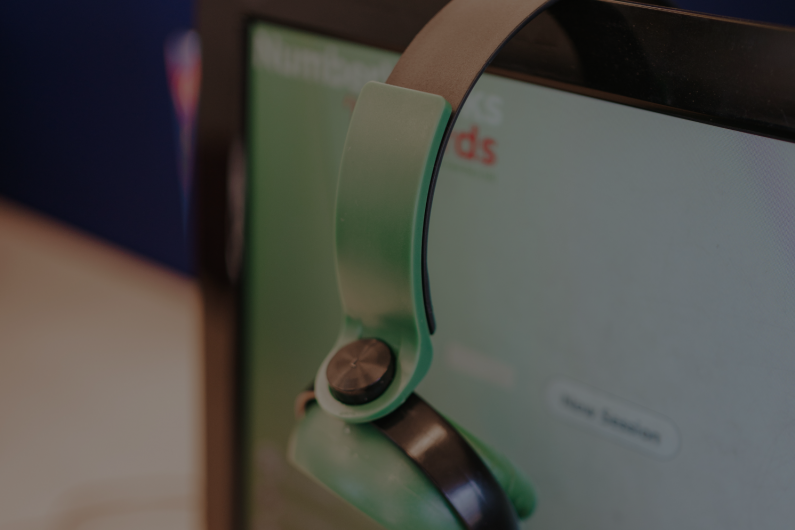
Artificial intelligence (AI) is all around us today. From voice assistants like Siri and Alexa to tools that help us write emails or solve math problems, AI has become a part of daily life. It is fast, impressive, and continually evolving. Naturally, many parents wonder what role AI will play in their child’s education and whether human teachers and tutors remain as important as ever.
At NumberWorks’nWords, we welcome useful technology to support learning. However, we also firmly believe in the irreplaceable value of human connection, guidance, and support in education. Here’s why, despite its many strengths, AI can’t do it all and why the human touch is more essential than ever.

AI Can Find the Answer But It Doesn’t Know Your Child
Let’s begin with a simple example. Imagine your child is stuck on a math problem: If Sam has 3 apples and buys 5 more, how many does he have now? An AI tool can provide the answer instantly, and it might even show the steps. But what if your child didn’t fully understand the question to begin with? What if the word “more” is confusing, or they’ve forgotten what “buying” means in this context?
A human tutor doesn’t just give the correct answer. They try to understand what’s happening behind the scenes. They ask questions, listen carefully, and adjust their explanations based on how your child responds. That’s something AI cannot replicate. AI doesn’t know your child’s learning style, personality, or how confident they feel that day.
When a child is struggling, the way a teacher responds can make all the difference. A warm smile, a word of encouragement, or a patient explanation tailored to your child’s needs builds both understanding and confidence. It transforms a moment of confusion into a moment of growth.
Real Learning Requires Real Relationships
One of the most important aspects of education is the relationship between a learner and their teacher or tutor. Think back to your own school days. Chances are you remember a teacher who believed in you, challenged you, or helped you see things from a new perspective. Often it is that connection that sparks a true love of learning.
AI cannot build relationships. While it can simulate conversation, it does not care the way a human does. It does not notice when your child’s eyes light up with understanding or fall with frustration. It cannot encourage them or celebrate their successes.
At NumberWorks’nWords, we understand how powerful these relationships can be. We have seen shy learners grow in confidence because someone took the time to truly listen. We have watched children go from saying “I hate maths” to “I actually enjoy this” because they felt seen, understood, and supported.
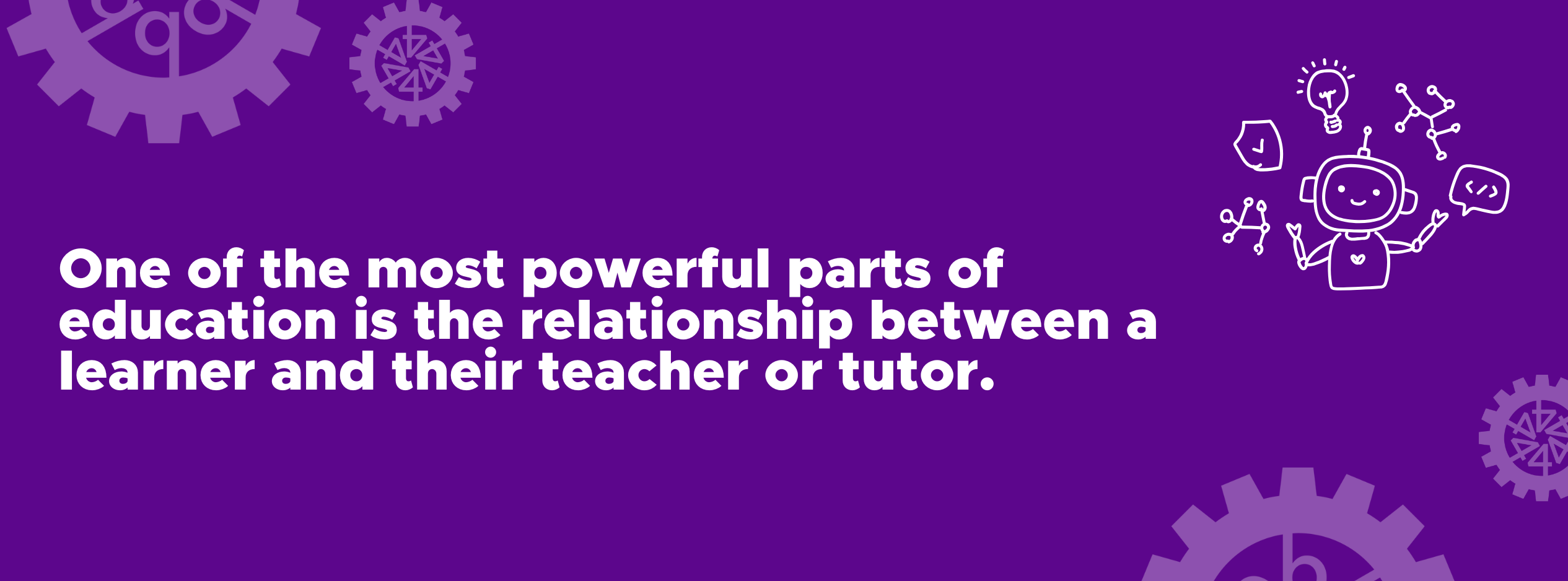
Mistakes Are Part of Learning and That’s Where Humans Shine
Learning is full of mistakes. In fact, we often learn best by trying, failing, and trying again. But making mistakes can feel intimidating, especially for children who may already feel unsure of themselves. What happens when a child gives a wrong answer to an AI tool? Sometimes it corrects them, sometimes it doesn’t. But it certainly doesn’t say, “Great thinking, you’re so close. Let’s work through it together.”
Human tutors know how to respond to mistakes with care. They can recognize when a child is making the same type of error and gently guide them in the right direction. They can turn a mistake into a learning opportunity. They might say, “That’s interesting, why do you think that happened?” They create a safe environment where it’s okay not to get everything right the first time.
This kind of emotional support helps children become more resilient learners. They begin to see challenges not as something to avoid, but as something to explore. That mindset cannot be programmed; it must be nurtured by real people.
Critical Thinking and Creativity Need More Than a Script
AI is excellent at providing answers to questions with clear, factual responses. However, education is about much more than just facts; it is about thinking. Children need to learn how to ask questions, recognize patterns, make connections, and develop their own ideas. These are the skills that will help them succeed in a world where AI serves as a tool and not a teacher.
Take writing as an example. An AI tool can generate a paragraph on “My Favourite Animal,” but it will not capture your child’s unique voice or imagination. It will not know that they once saw a dolphin at the aquarium and have loved them ever since. It will not guide them in expressing that memory with vivid language or original insight.
A tutor, on the other hand, can ask questions like, “What made that moment so special?” or “Can you describe the dolphin’s movement using a metaphor?” These kinds of prompts encourage children to grow as thinkers and creators. They move beyond simply completing an assignment and engage in true learning.
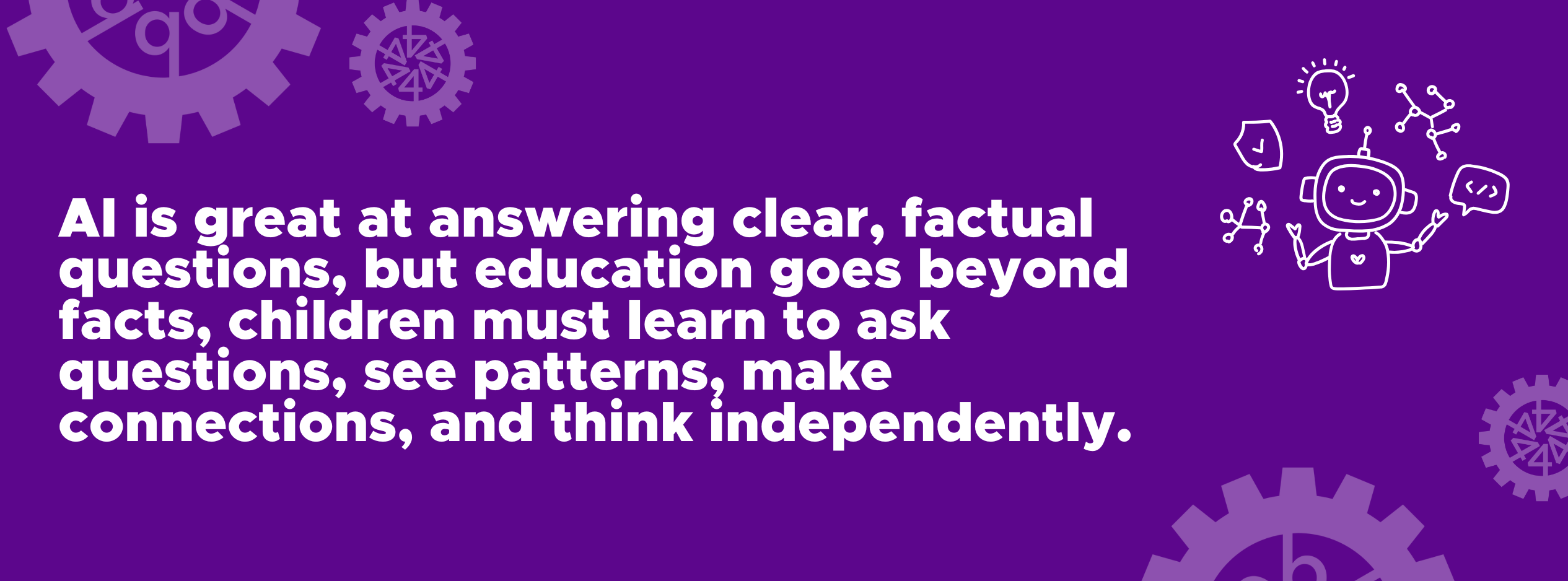
AI Isn’t a Mentor, a Role Model, or a Cheerleader
Children learn by observing, imitating, and finding inspiration. They look up to the adults who teach them not only for their knowledge but also for who they are as people. A tutor might demonstrate how to solve a difficult math problem, but they are also showing how to stay calm under pressure, approach challenges with curiosity, and persevere when things get tough.
AI does not model these behaviours. It cannot teach children how to be learners themselves. It can provide tools but not true guidance. It can offer answers but not wisdom.
We often hear from parents that their child feels more motivated after a tutoring session, not just because they understood the material, but because someone believed in them. That kind of encouragement is not something you can download. It is created through genuine human connection.
The Future of Learning Is Human Centred
We’re not saying AI doesn’t have a place in education. It absolutely does. It can be a helpful tool, especially for practice, quick feedback, or generating ideas. But like any tool, it’s only as good as the person using it. And children, especially, need more than just tools. They need teachers, mentors, and guides who walk the learning journey with them.
At NumberWorks’nWords, our approach combines structure, individual attention, and positive reinforcement. Our tutors don’t just focus on right and wrong answers. They focus on your child as a whole person. That human connection is where confidence grows, curiosity sparks, and real learning happens.
So as AI continues to evolve, let’s not forget what makes us truly human: empathy, encouragement, and the ability to connect with each other. That’s something no machine can replicate and something your child deserves every step of the way.
